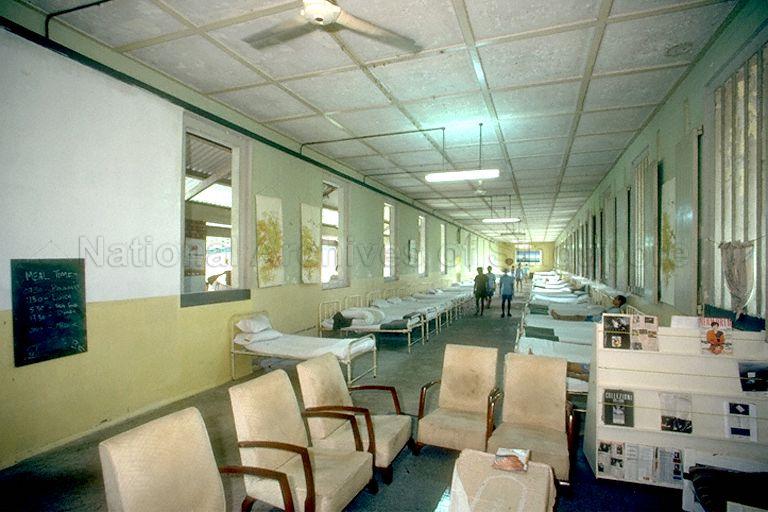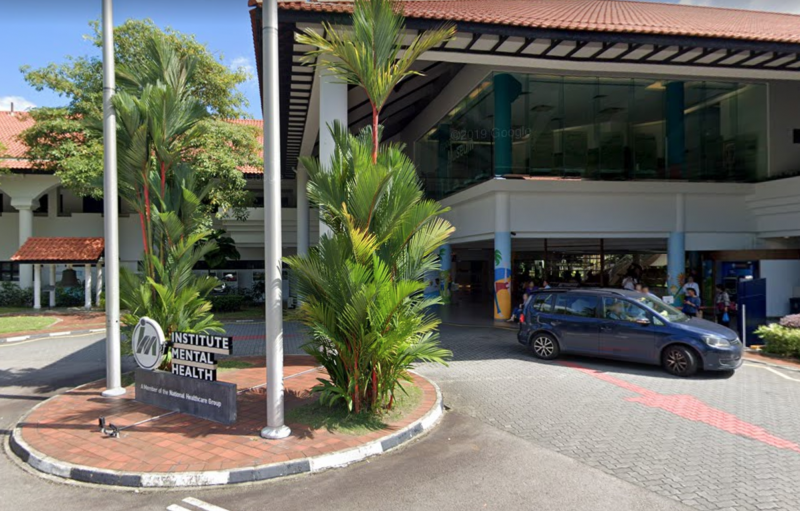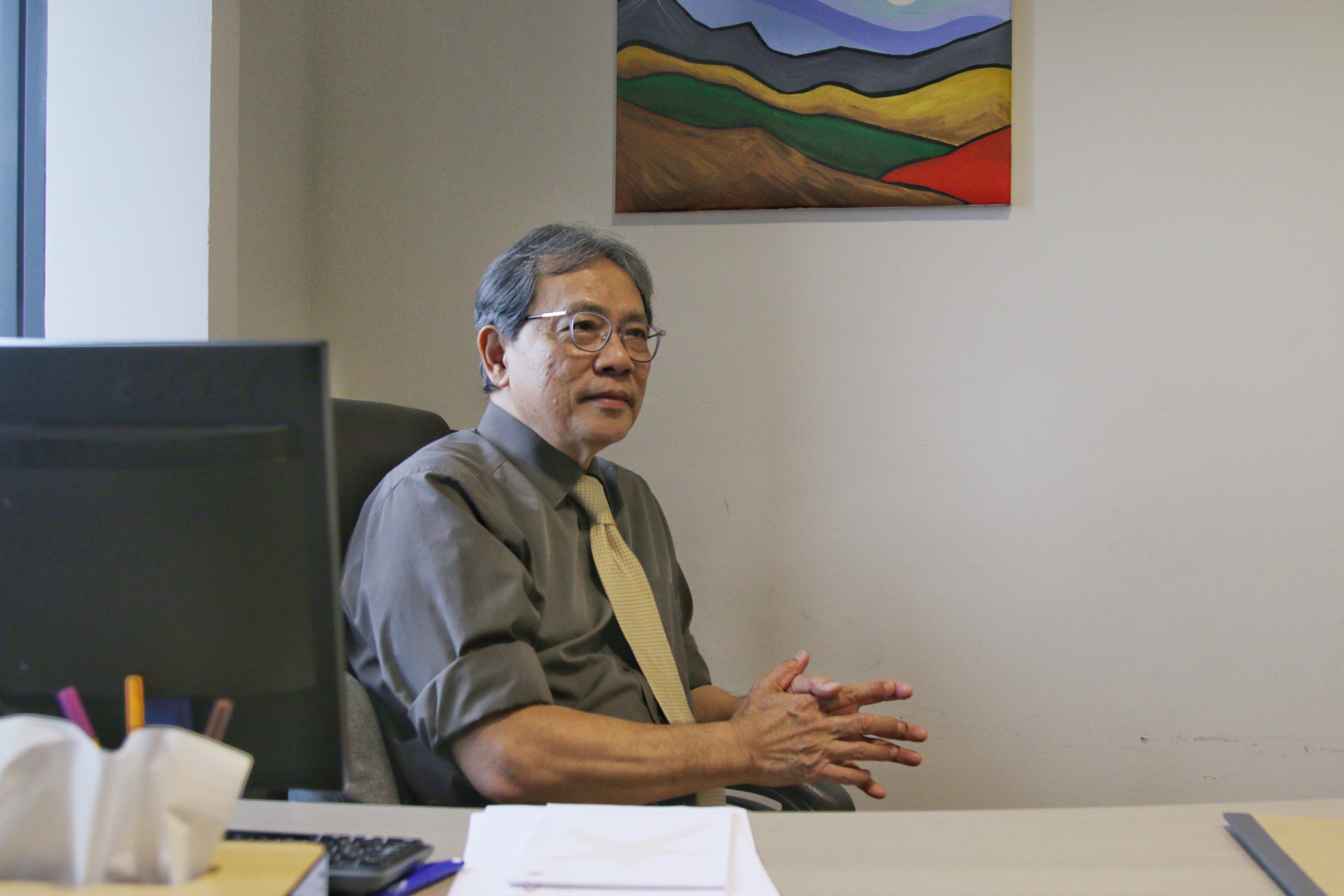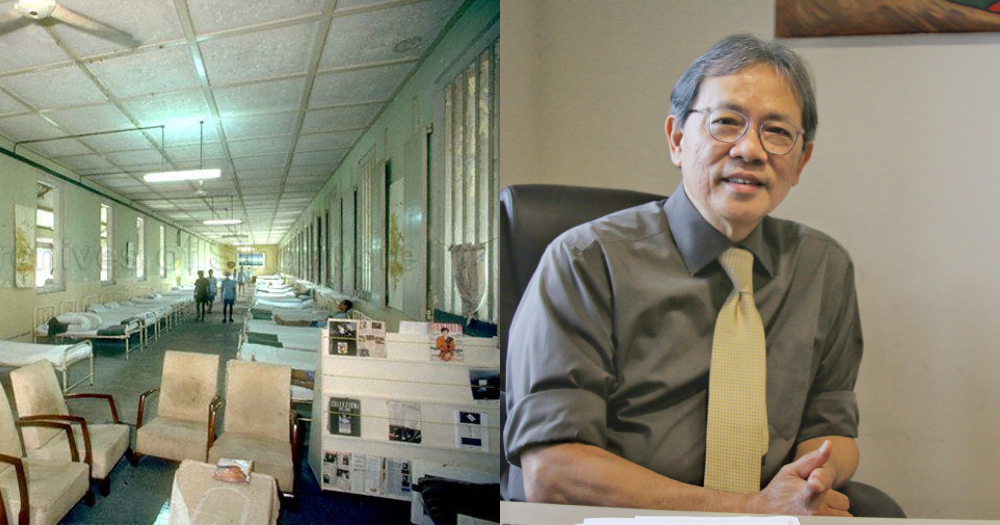It was almost four decades ago now, but Professor Kua Ee Heok can still remember his first day at work in Singapore.
The year was 1981 and Kua had just left the United Kingdom after completing his training in psychiatry at Oxford.
He was taking up a position at Woodbridge Hospital — as you may know or remember, what Singapore's main mental health institution was called at the time.
"When I went over there to work, on the first day, talking to the patients I realised there was tremendous prejudice, misconception, and discrimination of people with mental illness."
One patient even told Kua that he found the societal perception of mental illnesses harder to deal with than the illness itself.
 Woodbridge Hospital, circa 1992. Image via the National Archives of Singapore online
Woodbridge Hospital, circa 1992. Image via the National Archives of Singapore online
It was another incident from that first day that perhaps better illustrates the zeitgeist, however.
Describing the stigma as "a shadow that followed me home", the psychiatrist recalls his neighbour's laughter upon hearing that Kua worked at Woodbridge.
"He was a doctor (at Tan Tock Seng Hospital)," says Kua with a chuckle that betrays just how ridiculous the situation was.
Leading authority on mental health
It's a far cry from Kua's present-day surroundings — a clinic at Farrer Park Medical Centre, where the 71-year-old doctor sees patients with mental illnesses.
Today, medical professionals no longer laugh when they hear of Kua's work.
Rather, he's seen as an established and leading authority on mental health in Singapore.
Any doubt about his street cred in the field can easily be dispelled by a peek at his National University of Singapore (NUS) profile, which makes for impressive reading.
Here are some highlights:
- 270 research papers written
- 23 books authored
- Head of the Department of Psychological Medicine, NUS (1995 – 2003, 2006 – 2009)
- Chairman of the SAF Psychiatry Advisory Board (2013 – present)
- CEO and Medical Director, Institute of Mental Health (IMH), Singapore (1999 – 2002)
The stigma of mental health
Yet as I sit across from Kua in his office, it's clear that I'm not talking to a man who's resting on his laurels.
Despite all his accolades and achievements, there is a strong argument to be made that Kua's real work remains unfinished.
The state of play is spelt out in the abstract for Kua's book Speaking Up for Mental Illness:
"In today's society, the stigma of mental health is prevalent and pervasive."
Doctor, psychiatrist, educator, advocate
Nonetheless, recognising Kua as just a doctor, psychiatrist, and educator would do little justice to his advocacy for the destigmatisation of mental health issues in Singapore.
In fact, it was Kua who oversaw one of the most important developments in Singapore's campaign against the stigmatisation of mental illnesses.
In his book, Kua writes about how during his first stint at Woodbridge, he learned of the hospital's reputation from the "suppressed voices and wry smiles of relatives".
"(Woodbridge) had permeated into the collective unconscious of many Singaporeans as a euphemism for mockery. What piqued me was not the name, but the ignorance about mental illness."
The consequences of such attitudes were clear — if Singaporeans did not take mental health seriously, then they were likely to neglect this important aspect of their well-being.
Furthermore, the distasteful reputation that haunted Woodbridge Hospital meant that people who might need treatment for mental illnesses would instead refrain from seeking qualified help, lest they end up "being sent to Woodbridge hospital", besmirched with the status of "Woodbridge patient".
The man who rebranded Woodbridge as IMH
 Image from Google Maps
Image from Google Maps
This annoyance would stay with Kua until his appointment as CEO and medical director at Woodbridge some 18 years later in 1999.
By then, the hospital was to be restructured and the Ministry of Health had decided that Kua was the man to lead that transition.
"I thought the name itself struck a lot of fear into people," he explains, before widening his eyes and lifting his open palms in the air.
"Woodbridge! Watch out!" he exclaims mockingly.
"So I thought, I was going to rebrand the name to the Institute of Mental Health (IMH)!"
But before this could happen, Kua needed to justify the new name. After all, naming the hospital an 'institute' would imply that a certain amount of education and research took place within its walls.
So Kua lobbied for NUS's postgraduate psychiatry training to be moved to IMH, while also overseeing the formation of the newly-minted Department of Academic Psychiatry.
Hospital staff soon felt qualified to begin using the name IMH in official correspondence.
It was a bold step forward in the battle to de-stigmatise mental illnesses in Singapore.
Discouraging numbers
Sadly, 20 years on, Kua admits that perhaps the effect of the rebranding has worn off.
"The name also, over some time, slowly built up its own stigma — 'Oh, IMH' you know? But slowly people must learn to accept it."
While Singaporean society has come leaps and bounds from the days where medical professionals were laughing at the prospect of mental illnesses, Kua believes that it still has some way to go before the stigma is totally eradicated.
"I think it's going to be a long time. I'm not sure even in my generation we can wipe it off."
According to the Straits Times, a 2018 survey conducted by the National Council of Social Service (NCSS) found that more than 50 per cent of respondents indicated an unwillingness to live with, live nearby or work with a person with a mental health condition.
Discouragingly, six out of 10 respondents believed that mental health conditions were caused by a lack of self-discipline and willpower, while five in 10 surveyed felt that persons with mental health conditions should not be given any responsibility.
Today reported the results of another study from last year, where researchers from IMH found that almost half (44.5 per cent) of teenagers polled attached negative and pejorative labels to people with mental illness.
Words such as “crazy”, “weird”, “scary”, “stupid”, and “dangerous” came to mind when those surveyed heard the words "mental illness".
46.2 per cent of respondents also said that they would be "very embarrassed" if they were diagnosed with a mental illness.
These figures are particularly distressing when you couple these numbers with statistics indicating that one in seven Singaporeans have experienced mental illness in their lifetimes.
Stuff that keeps him up at night: suicide rates and the fear of diagnosis
For Kua, one particularly worrying pattern relating to mental illness is that of mortality amongst those experiencing depression.
"Now we are a bit concerned because the suicide rate has not gone down, although we've put in a lot of money to train more doctors, more nurses, more psychiatrists, more psychologists.
We reckon that a lot of these people who are burnt out, they don't come out for treatment. They're afraid, fearful that if they go and see a doctor for depression, 'does it mean I'm a weak fella? That I can't cope with stress?'"
 Image by Andrew Koay
Image by Andrew Koay
In a classically Singaporean twist of the tale, Kua tells me the reluctance many people have to get help can often stem from a perception that it will adversely affect their career prospects.
"In working people, there's often the fear of bosses — 'what would the boss say if I'm depressed?' You know? Cause they'll take leave and all that. But in a caring environment, people should accept these changes in people's lives."
Leaning forward in his chair, Kua tells me the "good news": when treated, many people eventually do recover from their mental illnesses.
Nonetheless, I can't help but feel that this hopefulness is tragically tainted.
Kua confirms that the biggest hindrance to early diagnosis and an ultimately complete recovery is the stigmatisation of getting help in the first place.
Like a vicious self-fulfilling cycle, those experiencing early signs of mental illness often refrain from getting treatment out of embarrassment or fear.
Yet this only results in symptoms getting worse, and before they know it, they're in deeper waters.
Working towards eradicating the stigma
There is one heartening anecdote Kua shares with me, though.
Back in 2000, Kua was having lunch at a Teochew restaurant near IMH, when the owner of the establishment relayed to him the anxiety that people around the hospital felt towards its patients.
"She said to me, 'why don't you open the hospital for the school children to visit. Like an open day!'
I thought the idea was very interesting so for the first time we had an open day. We invited some singers and actresses to come and join us. School kids came for the activities we organised. And people saw, hey its okay, (the patients) aren't dangerous."
It's an apt reminder that while the stigma around mental illnesses persists till today, it doesn't have to.
Kua himself finds encouragement in the increased visibility of mental health advocacy in the public eye nowadays.
He intimates that in the age of social media, information about mental health is literally at the fingertips of Singaporeans.
A special mention is given to Beyond the Label, a National Council of Social Service-led movement to address stigma faced by persons with mental health conditions in society:
"One thing good about Beyond the Label is that it is bringing lots of organisations together. It should not just be the role of psychiatrists and psychologists (to educate society about mental illnesses)."
Instead, it's clear that the responsibility now falls on all of us to build a society where the stigma of mental health is a thing of the past.
Helplines:
SOS 24-hour Hotline: 1800-221-4444
Singapore Association of Mental Health: 1800-283-7019
Institute of Mental Health: 6389-2222 (24 hours)
Tinkle Friend: 1800-274-4788 (for primary school-aged children)
Top image via National Archives of Singapore and Andrew Koay
If you like what you read, follow us on Facebook, Instagram, Twitter and Telegram to get the latest updates.
